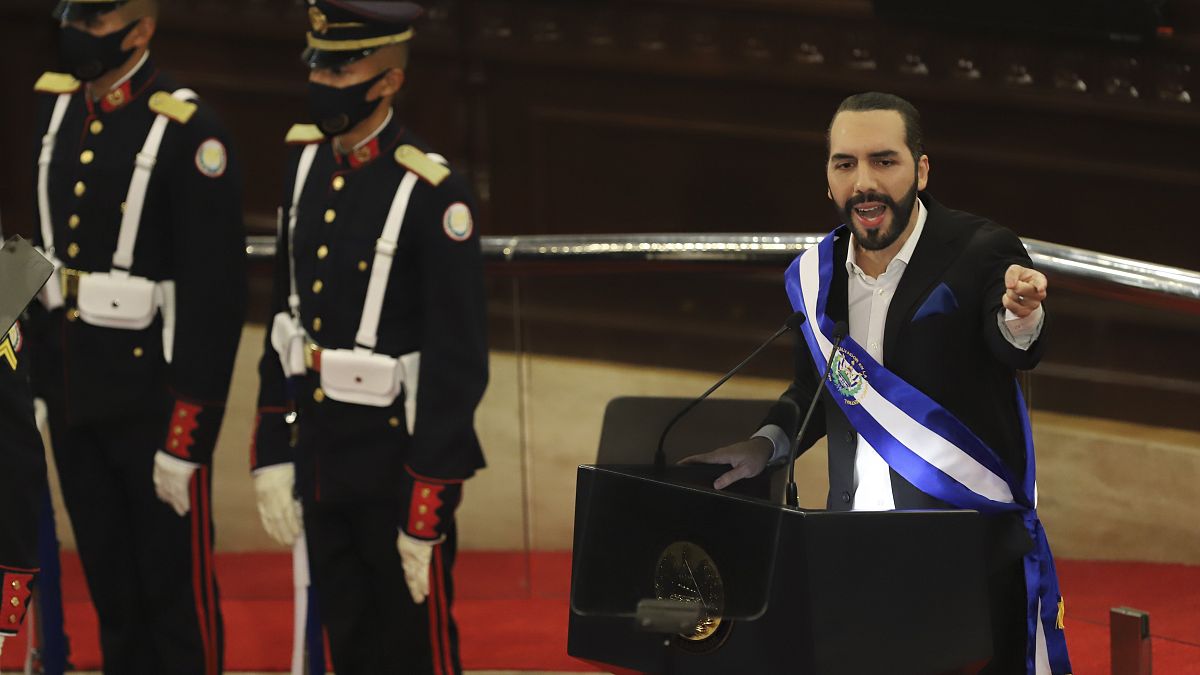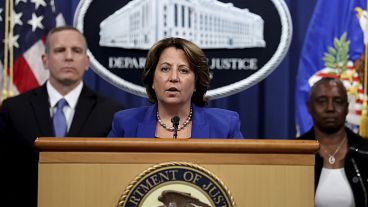El Salvador president Nayib Bukele said history had been made with Bitcoin now due to become legal tender within 90 days.
Lawmakers in El Salvador have voted to make Bitcoin legal tender in a world first for the cryptocurrency.
El Salvador's President Nayib Bukele hailed the vote, saying on Twitter that history had been made.
The country's Congress voted 62-22 in favour of the proposal, which will be implemented within 90 days.
Bukele announced the plan to adopt Bitcoin as an official currency in a recorded message played at the Bitcoin 2021 Conference in Miami last week.
The 39-year-old president, who has maintained approval ratings above 90 per cent and made Twitter his preferred way of communicating, characterised his proposal as an idea that could help El Salvador move forward.
"In the short term this will generate jobs and help provide financial inclusion to thousands outside the formal economy and in the medium and long term we hope that this small decision can help us push humanity at least a tiny bit into the right direction," he said.
Prior to the vote, the US dollar was El Salvador's only official currency. About one quarter of El Salvador's citizens live in the United States and last year, despite the pandemic, they sent home more than $6 billion (€4.9 billion) in remittances.
What does the vote change?
In short: a lot.
Article Seven of the newly-approved law requires all businesses and other "economic agents" in El Salvador to accept Bitcoin as payment for goods and services, although those without access to the necessary technology will be exempt.
The Central American country will also permit prices to be expressed in Bitcoin and citizens will be able to pay their taxes using the cryptocurrency.
In a move that may spark interest among international investors, exchanges made using Bitcoin will be exempt from capital gains tax.
The law also commits the El Salvadorean government to providing technological solutions and necessary education to allow the country's citizens to use Bitcoin in their everyday lives.
Why do this?
As noted in the new law, 70 per cent of El Salvador's population does not have a bank account and works in the informal economy.
The country's economy is heavily reliant on remittances sent from a large foreign diaspora, based mainly in the United States.
Bukele has noted that Bitcoin could be "the fastest growing way to transfer 6 billion dollars a year in remittances".
He said that a big chunk of those money transfers was currently lost to intermediaries and with Bitcoin more than a million low-income families could benefit.
Riding on his high popularity and his party's dominance performance in February 28 elections, Bukele has concentrated power.
His party's supermajority in congress ousted the justices of the Constitutional Chamber of the Supreme Court on May 1. They then replaced the attorney general.
They had been critical of some of Bukele's more drastic measures during the pandemic, including a mandatory stay-at-home order and containment centres where those caught violating the policy were detained.
Bukele's power has raised red flags
While enjoying a positive relationship with former US President Donald Trump, Bukele has had a much more tense relationship with the administration of President Joe Biden.
Last month, the White House Special Envoy for the Northern Triangle Ricardo Zúñiga said during a visit to El Salvador that the U.S. government would like to see El Salvador reverse the moves against the court and the attorney general. Bukele said that would not happen.
Bukele's concentration of power, attacks on critics and open disdain for checks on his power have raised concerns about El Salvador's path.
However, Bukele has a wide base of support in part due to the utter failure of the country's traditional parties who ruled during the past 30 years to improve people's lives and to his ability to provide short-term benefits.
Bukele has been praised for aggressively obtaining COVID-19 vaccines and running an efficient vaccination program far more successful than El Salvador's neighbours.



